Policy﹀
INSE's Report on China's Sovereign Financing in Africa
2023-10-13
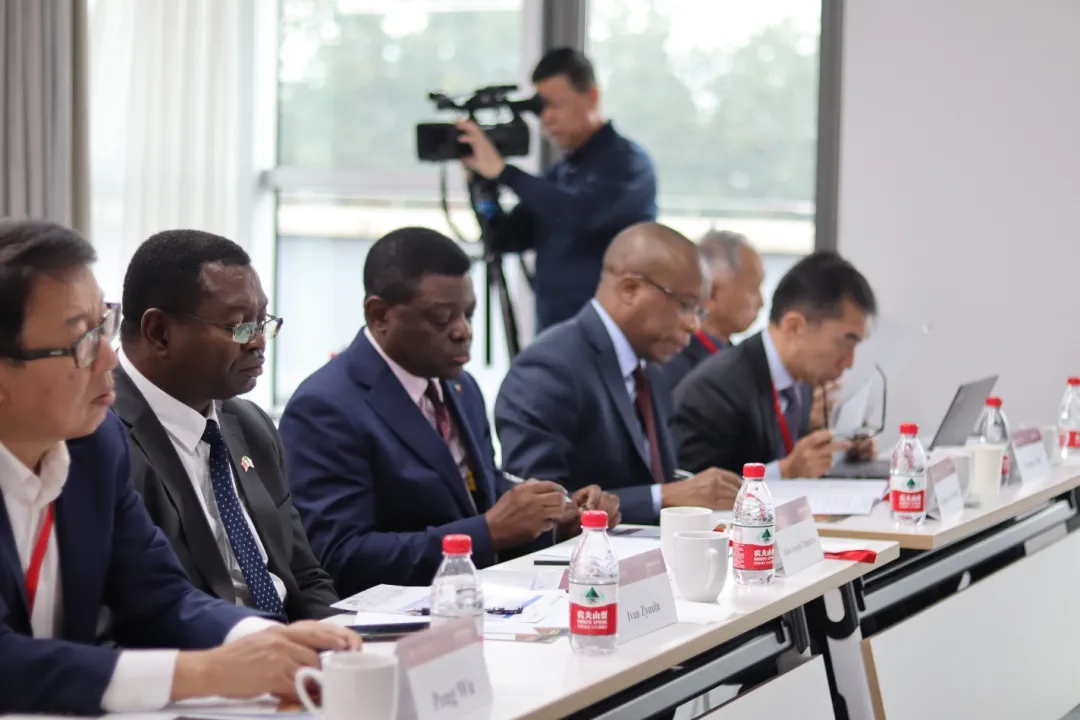
On October 12, 2023, the Institute of New Structural Economics at Peking University (INSE) hosted the 40th NSE International Development Forum to launch the report titled "A Study on the Effectiveness of China's Sovereign Financing in Africa". The event brought together over 46 individuals, including government officials, ambassadors, economic experts, scholars, and both international and domestic journalists. The purpose was to officially release the report and engage in discussions on topics related to Chinese lending in Africa, which was moderated by Dr. Yu Jia, the director of the Department of International Development Cooperation, INSE.
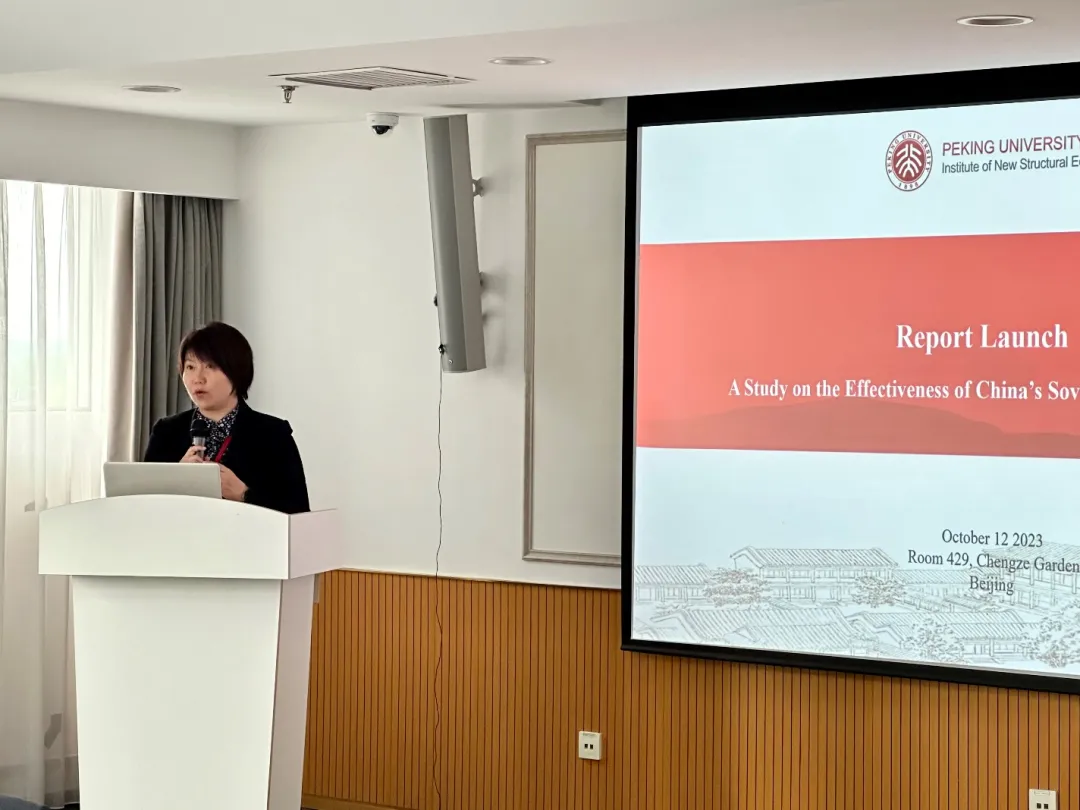
In a noteworthy opening, Professor Justin Yifu Lin, Dean of the Institute of New Structural Economics, provided welcoming remarks. Professor Lin reflected on China's remarkable development journey over the past four decades and outlined prospects. From the perspective of new structural economics, he emphasized that continuous income growth is contingent upon boosting productivity, making infrastructure investment pivotal in overcoming bottlenecks and fostering growth. The Belt and Road Initiative (BRI) places significant focus on infrastructure connectivity, offering Chinese government financing to assist African nations in addressing their infrastructure challenges. This initiative aligns with the vision of creating a shared future for the global community, as Chinese President Xi Jinping proposed.
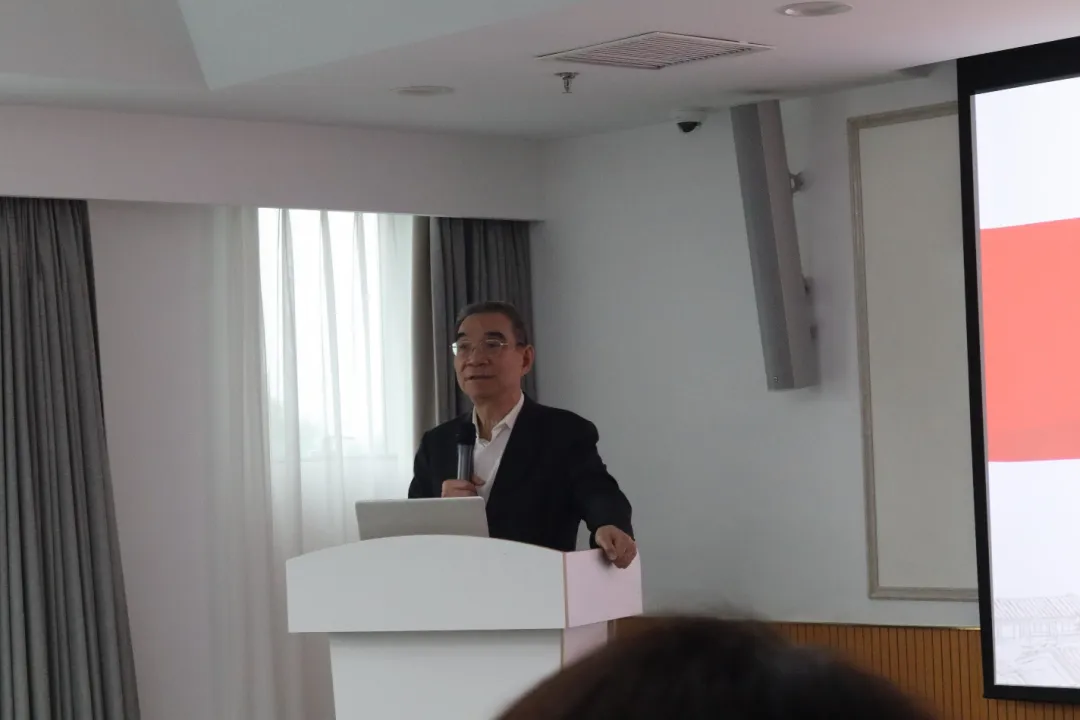
The report "A Study on the Effectiveness of China's Sovereign Financing in Africa" was introduced by the Department of International Development Cooperation's team. It conducted case studies and empirical analysis to estimate the impacts of the Chinese loans. The analysis showed that China's financing in Africa contributed to economic growth, social welfare, and increased export and foreign exchange income to African nations, improving debt repayment. The empirical analysis coincides with the positive impacts of the case studies. The study figured out that the policy impact of China's loans is in line with existing policy frameworks, contributing to the Sustainable Development Goals of the United Nations and the national development plans of the borrowing nations in Africa.
With China's rapid economic growth, it's become a significant contributor to global development. From 2000-2020, China committed $160 billion in loans to African countries, with official lenders responsible for 56%. Around 90% of these loans supported low and lower-middle-income African nations, with over 67% dedicated to infrastructure and other sectors. Improved communication among Chinese creditors and other lenders is essential. China's impact on African financing is interconnected with other lenders. The report emphasizes increased investment in African nations, enhanced economic growth, educational attainment, infrastructure improvement, job creation, integration into the global economy, and foreign exchange earnings in African countries.
The event was also followed by a panel discussion.
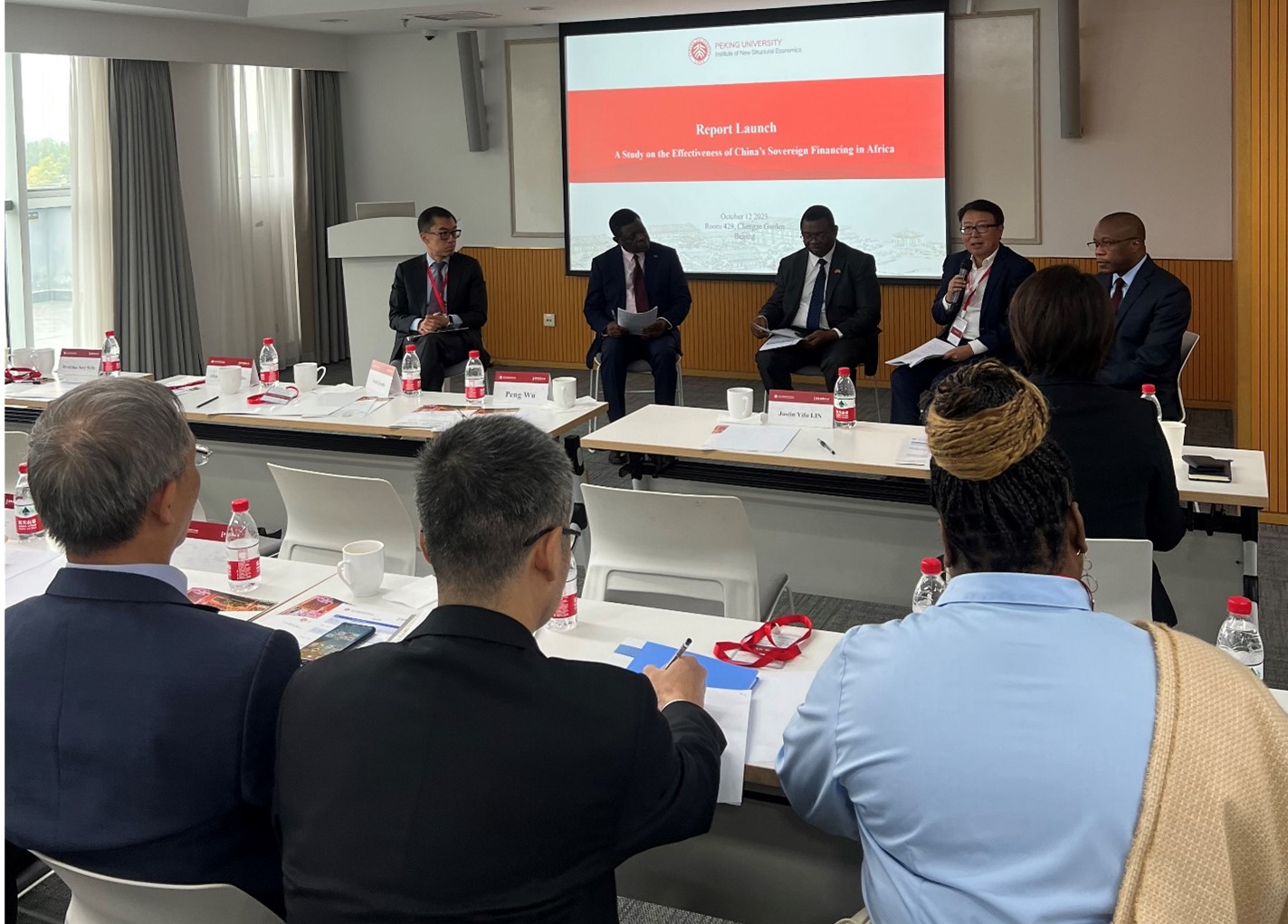
In the discussion, Mr. Wu Peng, Director-General of the Department of African Affairs of the Foreign Ministry, expressed China's continued confidence in its African financing efforts despite many challenges. He suggested prioritizing 'small and beautiful projects' while maintaining support for infrastructure, such as railways. Criticism of transparency issues is viewed as unfair, and there's a call for shared responsibility by international institutions. Debt sustainability and transparency in debt risk assessment are essential. China remains resolute in its anti-corruption stance, domestically and in international financial activities. China commits to abiding by laws and regulations in overseas business dealings, emphasizing cooperation on project costs with recipient countries. He also highlighted China's long-term commitment to agriculture, dispatching technical teams and promoting African agricultural exports. Specific projects are approached on a case-by-case basis to benefit African farmers, encouraging equal and sincere cooperation.
H.E. Mr. Ibrahima Sory Sylla, Senegalese Ambassador-Designate to China, stressed the importance of evaluating the impact of Chinese financial support in Africa, emphasizing transparency and monitoring. He discussed Africa's priorities like industrialization, food security, and human capital development, urging Africa to set its development goals through multilateral cooperation with China. Ambassador Sylla also raised concerns about rating agency assessments, emphasizing the uniqueness of African situations. In the international arena, he highlighted the need for coordination among organizations like the IMF, World Bank, and multilateral development banks to find common ground.
H.E. Mr. Ivan Zyuulu, Zambian Ambassador-Designate to China, highlighted vital topics related to Africa's economic and social development, including infrastructure, agricultural modernization, and anti-corruption measures. He emphasized the importance of regional cooperation and the Belt and Road Initiative. Ambassador Zyuulu stressed the need for high-quality infrastructure to modernize agriculture, a crucial sector in Zambia and across Africa, and the importance of stable markets. Regarding China's credit support, he underscored its crucial role in promoting African economic development and social progress.
H.E. Mr. Allan Joseph Chintedza, Malawi's Ambassador to China, expressed his appreciation for the valuable report and emphasized the importance of ongoing dialogue between African countries and China. He noted that this dialogue stems from Africa's past interactions with international organizations like the IMF and the World Bank. Structural adjustments under these organizations raised questions about their true impact on African economies. The report provides an opportunity for honest collaboration and addressing the complexities of simultaneous loans from the IMF and China. Infrastructure development was highlighted as essential, particularly in the electricity access sector. He advocated for extended debt maturity terms to support sustainable development and encouraged African nations to focus on value-added products. Collaboration with Chinese companies for mutual benefit was also encouraged.
Mr. Jianping Thia, Principal Economist and Manager at the Asian Infrastructure Investment Bank, discussed the challenges in evaluating financing effectiveness due to the complexity of selecting appropriate variables and the lack of high-quality data. He emphasized the need for prudent debt management, coordination, and planning over the speed and volume of infrastructure projects. Mr. Thia shared the IMF's focus on financing assurance and debt sustainability, stressing the importance of long-term approaches, ongoing dialogue, and collaboration across various frameworks. He strongly emphasized green energy transition, highlighting Africa's potential in renewable energy, which could play a significant role in the global transition to cleaner energy sources.
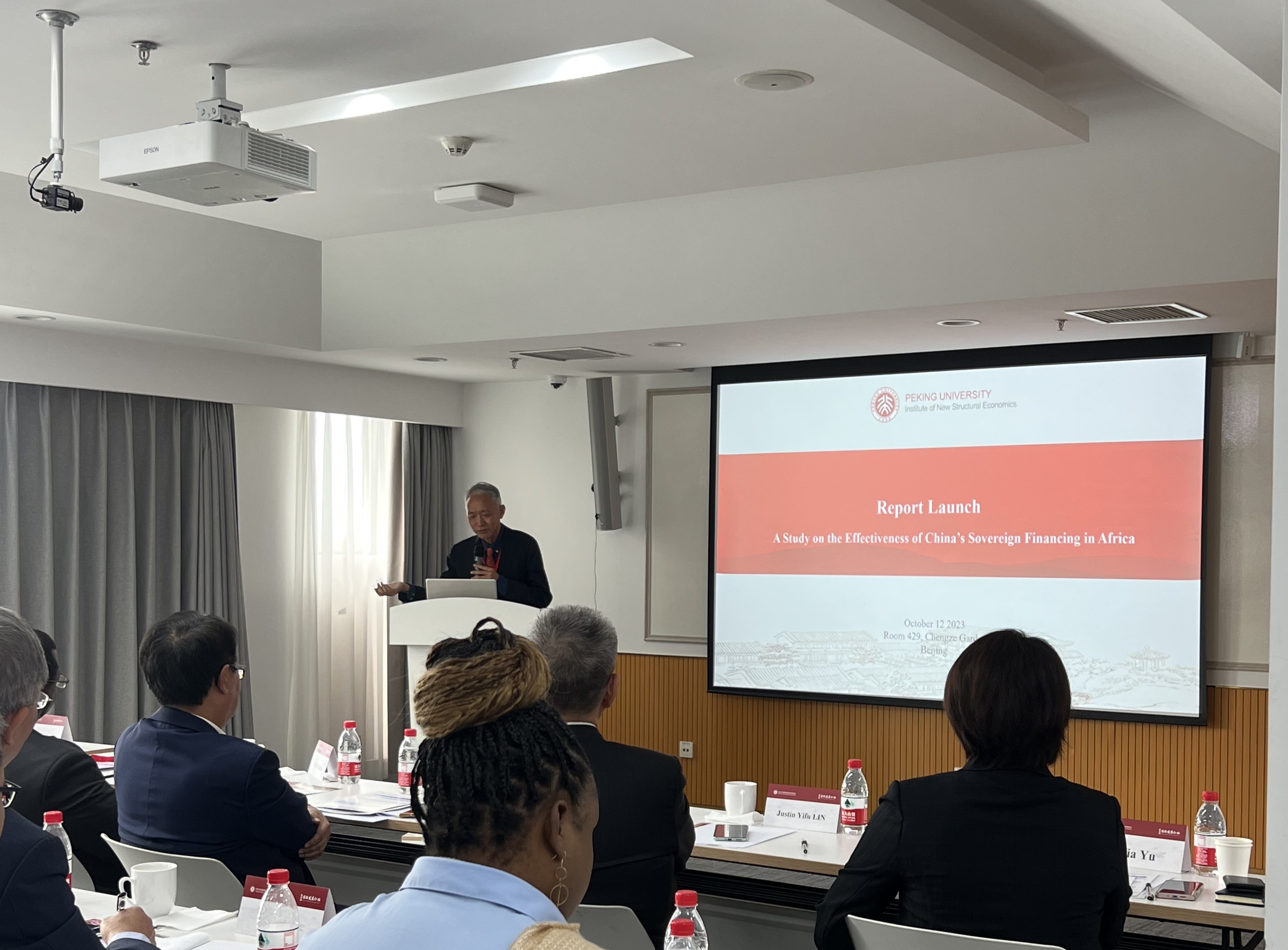
Dr. Yongping Zhai, Senior Advisor of Tencent's Strategy Development Department, an expert with over 30 years of experience at AfDB and ADB, delivered the closing remarks. He highlighted the contrasting policy influence of Chinese institutions and Multilateral Development Banks, attributing it to differing theoretical foundations. Dr. Zhai commended the report's solid foundation in new structural economics and empirical research, emphasizing its timeliness with the upcoming Belt and Road Forum and its potential contributions to the forum. He suggested that future research should assess private-sector financing in Africa and explore collaborations with other critical players.
At the end of the event, Prof. Justin Yifu Lin was interviewed by China Daily on issues related to Chinese loans, while Dr. Yu Jia and H.E. Mr. Ibrahima Sory Sylla were interviewed by CGTN.
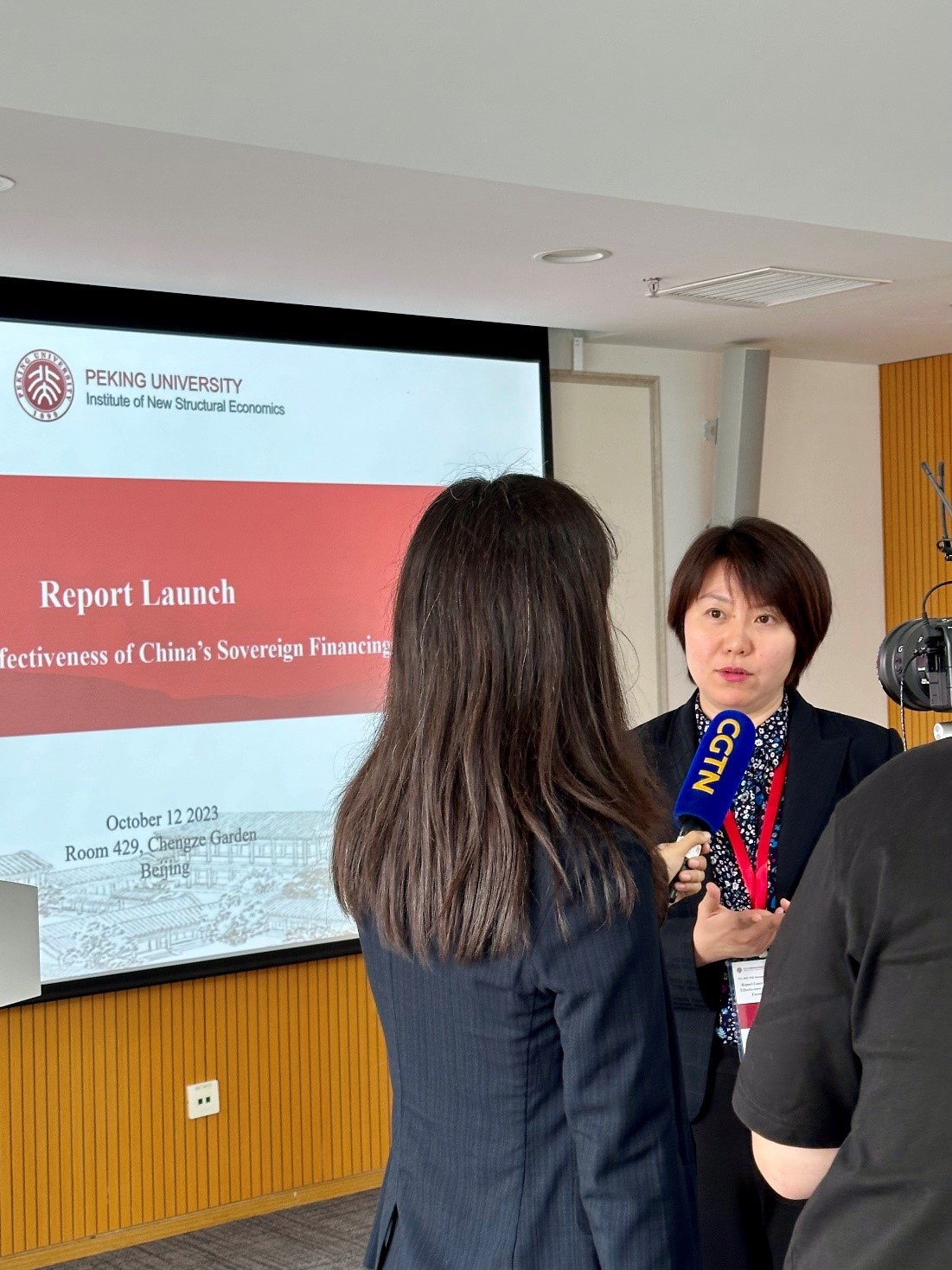
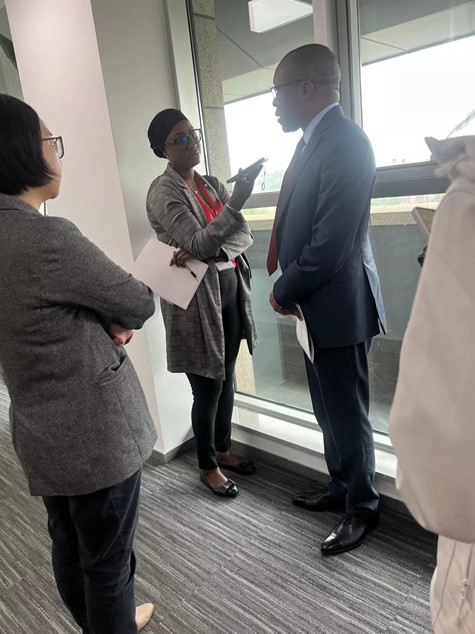
The International Development Forum on New Structural Economics (NSE) serves as a premier platform connecting academia and practical development in international development fields. The Institute of New Structural Economics at Peking University is China's pioneering institution dedicated to innovative social science theory. NSE emphasizes building industries based on a country's comparative advantages, ensuring competitiveness and growth in the international market. INSE encourages dialogue on applying new structural economics, forging innovative development concepts, and exploring practical development approaches. To date, INSE has hosted 40 forum sessions.
(The above contents are compiled according to the speech of the panelists.)
Contributed by the Department of International Development Cooperation, INSE
Download reports:
A Study on the Effectiveness of China's Sovereign Financing in Africa

